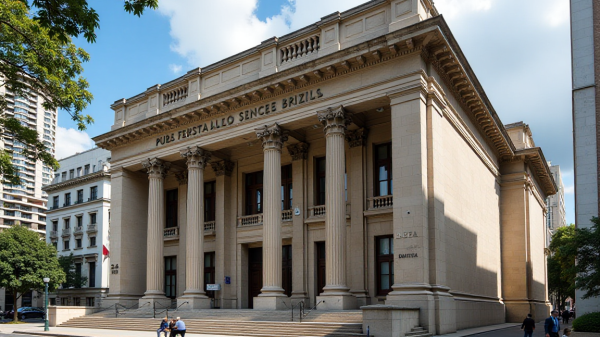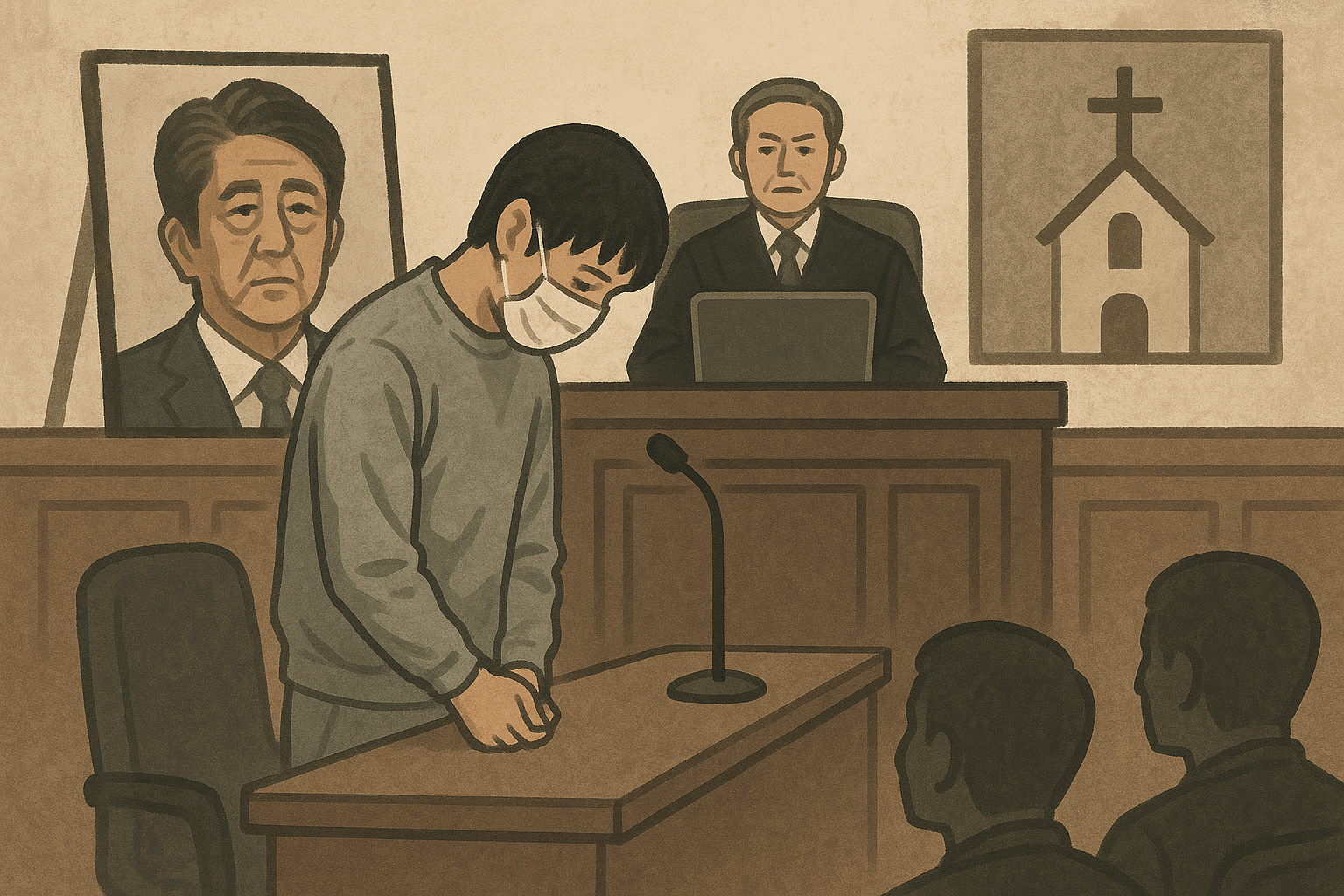The man accused of killing former Japanese Prime Minister Shinzo Abe has pleaded guilty to murder, marking a pivotal moment in a case that reignited debate over Japan’s intersection of politics, religion, and public trust.
The trial of 45-year-old Tetsuya Yamagami began at the Nara District Court, Bloomberg reports, where he admitted to fatally shooting Abe with a homemade gun during an election campaign in July 2022.
The incident not only shocked the nation but also forced scrutiny of Japan’s political institutions and their links with the group formerly known as the Unification Church.
Abe’s assassination and political fallout
Abe was shot while delivering a campaign speech in Nara, a city near Kyoto, in July 2022.
Bloomberg states that Yamagami’s attack was reportedly motivated by resentment toward the Unification Church, which he accused of financially ruining his family through excessive donations.
Following the assassination, public attention quickly shifted to the church’s deep-rooted ties with members of the Liberal Democratic Party (LDP), which Abe had led for years.
The revelation triggered widespread criticism and a loss of public confidence in Japan’s ruling party. Over the next two years, the LDP struggled to regain stability, facing leadership changes and a series of funding scandals.
The case continues to cast a long shadow over Japanese politics, particularly as the country’s first female Prime Minister, Sanae Takaichi — an Abe protégé — assumes leadership amid renewed public debate over political accountability.
Legal developments and impact on the Unification Church
Yamagami’s defence is expected to seek leniency, citing the alleged psychological toll caused by his family’s connection to the Unification Church.
His trial will span 18 hearings, concluding with a verdict scheduled for 21 January.
Meanwhile, in March, a Tokyo court ordered the dissolution of the Unification Church’s Japanese branch, ruling that it systematically exploited followers through coercive donation practices.
As per the Bloomberg report, the order removes the organisation’s tax-exempt status but still allows it to continue operating.
The church has appealed the decision, maintaining that the ruling infringes on religious freedom.
The government’s move reflects growing public demand for stricter oversight of religious groups and their financial dealings.
The controversy has become one of Japan’s most significant legal and social issues since Abe’s death, exposing gaps in how religious entities are regulated under existing laws.
Political ripples and Japan’s leadership under scrutiny
The assassination prompted major resignations within the LDP and forced a reassessment of the relationship between politics and faith-based organisations.
Abe’s close ties to the Unification Church were central to the backlash, with critics accusing the party of fostering relationships that blurred ethical lines.
The fallout extended into electoral politics, with many lawmakers publicly severing ties with the organisation to restore voter confidence.
Despite these efforts, opinion polls show continued scepticism toward the party’s transparency.
Prime Minister Takaichi, who took office this month after winning the party’s leadership race, faces the challenge of navigating both the legacy of her mentor and the demands for reform that stem from his assassination.
Public reaction and the path forward
Abe’s killing was the first assassination of a former or sitting Japanese leader in decades and led to sweeping reviews of security procedures at political events.
The government increased safety measures for public appearances and introduced stricter gun control enforcement, even though firearms remain rare in Japan.
Yamagami’s trial has reopened painful national memories while also fuelling broader reflection on how institutions handle the balance between religion, politics, and individual responsibility.
The hearings will determine not just Yamagami’s fate but also how Japan reconciles the cultural and political divides brought to light since Abe’s death.
The case continues to dominate headlines as Japanese society grapples with its implications for democracy, transparency, and public faith in leadership.
The post Japan opens Abe murder trial; shooter pleads guilty amid church-politics scrutiny appeared first on Invezz




































